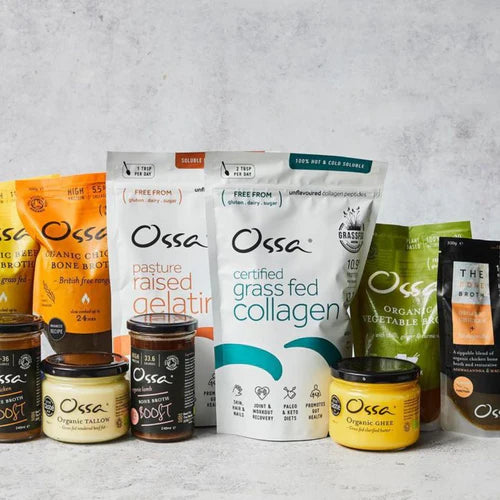Discount codes are not available during the white friday period
With the rise in demand for clean, sustainable food, organic food stores have become go-to destinations for health-conscious shoppers. But if you’re looking to make the most informed choices and ensure you’re getting true organic quality, it helps to know what to look out for. Here’s your guide to navigating organic food stores—whether in-person or online—and choosing products that are genuinely good for both you and the planet.
Know Your Organic Certifications
Not all labels are created equal. When you're shopping at organic food stores in the UK, keep an eye out for certifications that validate the authenticity and quality of the products. Look for:
- Soil Association Certification – This UK-based label is known for its high standards and strict guidelines for organic farming.
- EU Organic Certification – A solid indicator that the product meets the European Union's organic standards.
These certifications aren’t just symbols; they’re proof that what you're buying was produced with respect for both your health and the planet.
Read the Labels with Intention
Checking labels goes beyond looking at ingredients; it’s about understanding what goes into each product and the impact it has. Organic products should be free from synthetic chemicals, additives, and preservatives. Look for short, simple ingredient lists, as these usually signal minimal processing. If you can pronounce every ingredient and recognize them as whole foods, you're on the right track.
Check Product Origins and Farming Practices
The source of your food matters. Organic doesn’t always mean local, so take the time to look at where a product was grown or produced. Many organic food stores provide information on farming practices, and some brands go the extra mile with regenerative agriculture techniques that help restore ecosystems and soil health. When you choose these products, you’re supporting farmers who put the environment first.
Watch Out for “Natural” Claims
"Natural" is a vague label that’s often used to make products sound healthier than they are. Unlike “organic,” the term “natural” isn’t regulated and can be misleading. If a product claims to be natural, dig a little deeper. Check for organic certifications, scan the ingredients list, and make sure it aligns with your values and health goals.
Think Beyond Produce: Organic Packaged Goods
Not all organic options are fresh produce. Organic food stores also carry packaged goods, from pasta to snacks. When picking these, prioritize minimal processing and whole food ingredients. Look for items low in added sugars and with high nutritional value.
Why Shop at Organic Food Stores?
Shopping at organic food stores means investing in your health and a commitment to sustainability. With every purchase, you're supporting farming methods that respect the planet, promote biodiversity, and reduce reliance on synthetic chemicals.
Each choice you make in an organic food store reflects a step towards a healthier, more sustainable lifestyle. Enjoy exploring these stores and discovering products that nourish you and the planet.



